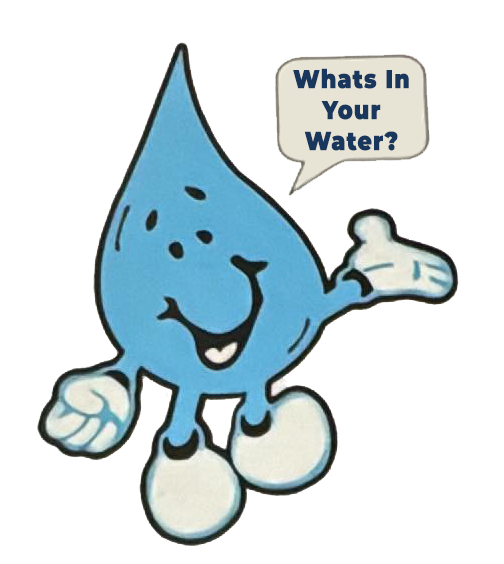Our relationship with water is unshakable – it’s the foundation of every living creature, and a basic need to sustain life. Despite its significance, many of us do not take the time to consider which kind of water is best for our bodies. Recently, alkaline water has been gaining traction, touted as a healthier option than regular tap or bottled water. But does the research support these claims? It’s time to take a closer look at what this water really offers and uncover the facts behind alkaline water. For those unfamiliar, alkaline water is water that has been treated with a process called ionization, which raises the pH level of the water. This water is said to have a positive effect on digestion, hydration, and overall well-being. Additionally, many believe alkaline water to be an effective antioxidant, claiming it can help counteract free radicals in our bodies. But how much of this is based on fact? Many have called into question the validity of the supposed benefits of drinking alkaline water. On the other hand, there are those who swear by its effects, claiming greater energy levels and better digestion. With so much conflicting information out there, sorting out what’s true can be overwhelming. Let’s take a dive into this mysterious water and see what we can find.
What is Alkaline Water?
Alkaline water is water that has been treated with a process called ionization, during which the pH level of the water is raised. The pH level is a measure of how acidic or alkaline a substance is, ranging from 0 to 14. Anything above 7 is considered to be alkaline, and anything below 7 is considered acid. Most tap and bottled water have a pH of 7, which is considered neutral. Alkaline water, on the other hand, is water with a pH level of 8 or higher. Alkaline water is created through a process called electrolysis, in which an ionizer is used to separate water molecules into alkaline and acidic components. During electrolysis, an electric current passes through two electrodes, a positive and a negative, and splits the water molecules into OH- (hydroxide) and H+ (hydrogen) ions. The hydrogen ions are then transferred to the alkaline side, lowering the pH level. This process makes the water more alkaline.
Benefits of Alkaline Water
The claimed benefits of drinking alkaline water range from improved digestion to increased energy levels. Proponents of alkaline water claim it can help with digestion, hydration, and overall well-being. Many believe alkaline water to be an effective antioxidant – that is, it can help counteract free radicals in our bodies, which are thought to be responsible for the signs of aging. Additionally, some studies have shown that alkaline water may help reduce acid reflux symptoms. Alkaline water also contains higher levels of certain minerals such as calcium, magnesium, potassium, and sodium. These minerals are thought to be beneficial for our bodies and can help promote healthy bones and muscles. Furthermore, alkaline water may help neutralize acids in the body, which can help keep your body in a balanced state.
Risks and Side Effects of Alkaline Water
The potential risks and side effects of drinking alkaline water are still largely unknown. While there have been some studies that have shown potential short-term benefits, there is still no long-term evidence to suggest that alkaline water has any lasting health benefits. Additionally, there is some concern that drinking too much alkaline water could lead to an imbalance in the body’s natural pH level, a condition called alkalosis. Additionally, the process of ionization can strip water of some of its beneficial minerals, like calcium and magnesium. This could potentially be problematic, as these minerals are essential for healthy bones and muscles. Furthermore, some studies have suggested that drinking alkaline water could interfere with the body’s absorption of certain medications, so it’s important to consult with your doctor before making the switch.

How to Ensure You’re Drinking High-Quality Alkaline Water
When it comes to drinking alkaline water, quality is key. To ensure you’re drinking the highest quality alkaline water, look for a water ionizer that is certified by a reputable third-party organization. Additionally, you should look for water ionizers that are made with quality material and are backed by a solid warranty.It is also important to note that the process of ionization is not regulated, so there is no guarantee that the water you’re drinking is actually alkaline. To be sure you’re drinking high-quality alkaline water, look for brands that use independent testing to verify the pH level of their water. Additionally, you can test the water yourself with pH strips or a pH meter.
The Bottom Line on Alkaline Water
The potential benefits of drinking alkaline water are still largely unknown, and there is not enough evidence to definitively conclude that alkaline water can provide any lasting health benefits. Additionally, there are some potential risks associated with drinking alkaline water, such as an imbalance in the body’s natural pH levels. When it comes to drinking alkaline water, quality is paramount. Be sure to look for high-quality water ionizers that are certified by a reputable third-party organization. Additionally, look for brands that use independent testing to verify the pH level of their water. Ultimately, the choice to drink alkaline water is up to you, but it is important to be informed about both the potential risks and benefits before making the switch. Exploring the potential benefits and risks of alkaline water can be daunting. But with the right information and understanding of what alkaline water really offers, you can make the best decision for your body.




